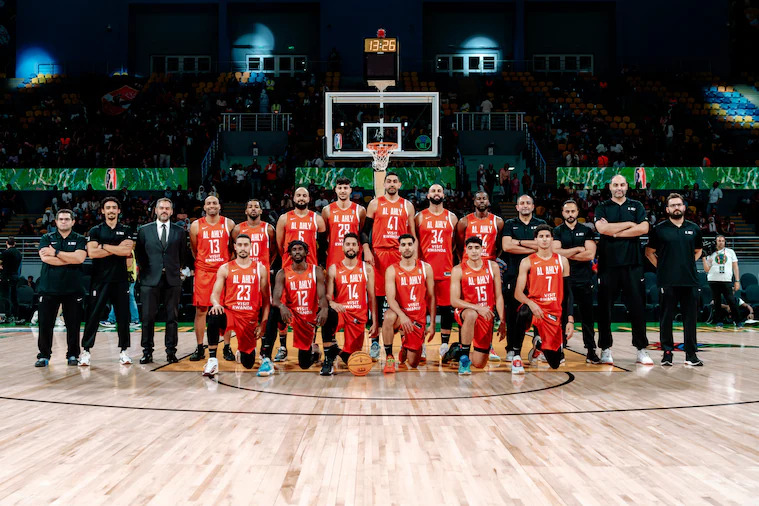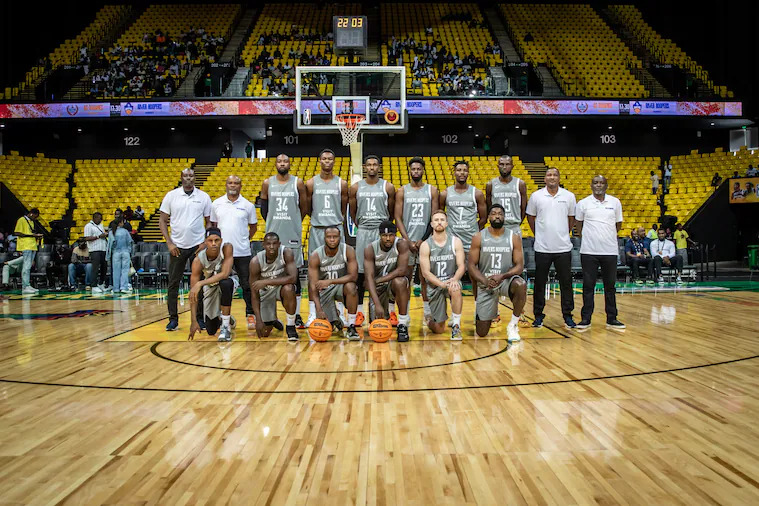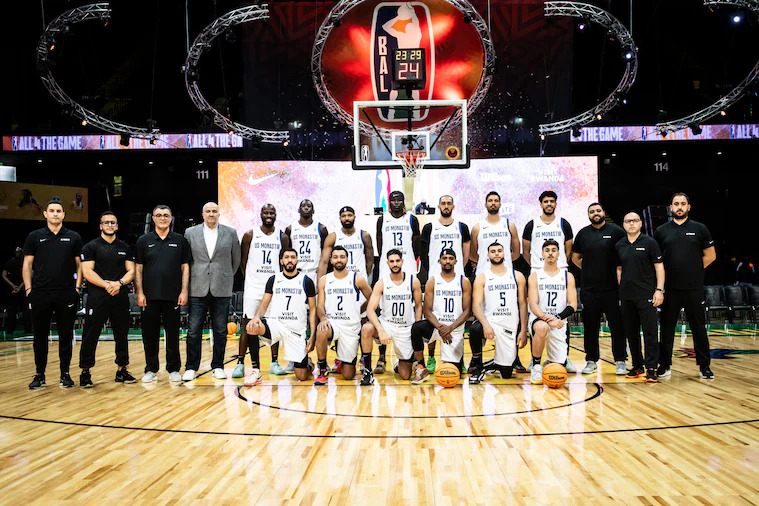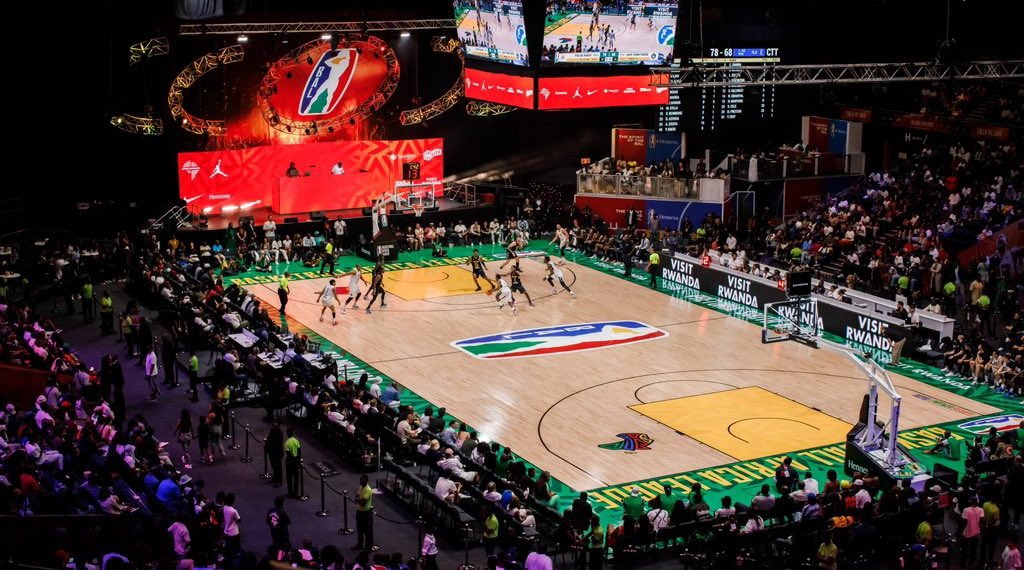The 2024 Basketball Africa League (BAL), the competition’s fourth season, has provided fans with a breathtaking spectacle so far, especially with the conclusion of the three conferences, which includes its inaugural Kalahari Conference.
Following the conclusion of the group phases, eight teams of the initial 12 teams qualified for the playoffs, slated to begin on Friday, May 24, in BK Arena in Kigali, Rwanda.
As this season’s BAL heads to its business end, Afrosport previews the teams competing in the playoffs with a view to how they fared in their respective conferences.
Meet the Elite Eight! 🌟
Here are the teams heading to the BAL Playoffs in Kigali, Rwanda 🇷🇼:🔹 Al Ahly 🇪🇬
🔹 FUS Rabat 🇲🇦
🔹 Rivers Hoopers 🇳🇬
🔹 AS Douanes 🇸🇳
🔹 Petro de Luanda 🇦🇴
🔹 US Monastir 🇹🇳
🔹 Al Ahly Ly 🇱🇾
🔹 Cape Town Tigers 🇿🇦The battle for the #BAL4 title… pic.twitter.com/BPZTNxlqwo
— Basketball Africa League (@theBAL) May 14, 2024
FUS DE RABAT (MOROCCO)
The Moroccan side playing in their first BAL tournament topped the standings in the first-ever Kalahari Conference held in SunBet Arena in Pretoria, South Africa.
FUS de Rabat, who qualified for the tournament after finishing second in the West Division’s Elite 16 campaign, won three of the four matches they played in the conference, finishing with a 3-1 record and a mammoth +41-point difference.
The Moroccan side led by Said El Bouzidi saw off Petro de Luanda in their first game before sealing a blowout win over conference hosts the Cape Town Tigers. Although they fell to Petro in their third game, they bounced back with an 84-75 win over the Tigers.
PETRO DE LUANDA (ANGOLA)
Like FUS de Rabat, Petro de Luanda sealed automatic qualification to the playoffs after finishing second in the Kalahari Conference with a 2-2 record.
Led by Jose Neto, the four-time Angola Basketball League champions defeated the Cape Town Tigers and FUS de Rabat, two teams they also lost to in their conference.
The Angolan side, competing in the BAL for a fourth straight season, will be looking to finally get their hands on the trophy, having previously finished in third place (2021), second place (2022), and fourth place last time.

AL AHLY (EGYPT)
The hosts of the Nile Conference and the BAL defending champions are not looking to slow down or relinquish their title, as they breezed past the other three teams in the conference.
The Egyptian giants comfortably saw off City Oilers and Al Ahly Benghazi in their opening two games before dispatching Bangui Sporting Club in their third game to cruise to a perfect start.
Although they fell to the Oilers in a slim loss, they bounced back immediately to secure back-to-back wins against Al Ahly Benghazi and Bangui in their final two games in the conference.
Anchored by the leadership of Augustí Julbe, Al Ahly are the team to beat in Kigali, as they will be gunning for their second BAL championship in two years.
AL AHLY BENGHAZI (LIBYA)
Many debutants don’t always make it to the playoffs on their first try in the BAL, but like Morocco’s FUS de Rabat, Al Ahly Benghazi from Libya also achieved this on the first try.
Initially booking their spot in the tournament through the Road to BAL qualifiers, they never seemed out of place as they finished second in the Nile Conference, securing automatic qualification to the playoffs.
Al Ahly Benghazi, Libya’s second-ever representative at the BAL, finished with a 3-3 record in the group phase, beating City Oilers of Uganda twice and Bangui once.

RIVERS HOOPERS (NIGERIA)
Following a subpar outing in their debut in 2021, the Rivers Hoopers definitely learned some valuable lessons as they went back to the drawing board to carve out ideas for a more successful run in their next edition.
Well, the opportunity to showcase their newly-processed ideas finally came as they made a return to the BAL, and coach Ogoh Odaudu’s side truly stunned everyone in the Sahara Conference.
The Nigerian champions started topped the conference, finishing with four wins and two losses—a record only bettered by Al Ahly of Egypt in the group phase. They kicked off their ascension with a shocking win over conference hosts AS Douanes before fending off debutants APR of Rwanda and 2022 winners US Monastir to maintain a 100-percent start.
Over their next three games, they lost one to Douanes at the buzzer, fought off APR after two overtimes and then lost to Monastir in the final game in the conference.
History was made along the line for the King’s Men, who became the first Nigerian side to win more than one game at the BAL; the first Nigerian side to win back-to-back games at the BAL; the first Nigerian side to top a group at the BAL; and the first Nigerian side to progress to the playoffs.
AS DOUANES (SENEGAL)
The Sahara Conference hosts, AS Douanes, who were losing finalists last time out, did not have it as easy as they would have wanted in the group phase.
The Senegalese side had to settle for a second-place finish due to a superior goal difference following a 25-point blowout win over APR on the final day.
AS Douanes finished with a 3-3 record after victories over US Monastir, APR, and Rivers Hoopers.

US MONASTIR (TUNISIA)
The winners of the second edition of BAL had to show serious resilience and a huge fighting spirit to seal their place in the playoffs.
US Monastir did not get the start to life in the Sahara Conference they initially craved for as they lost all three of their opening games, including a shocking defeat to first-timers APR on the opening day of the group.
However, the Tunisians showed that champions are called champions because of their “never say die” mentality as they fought back hard to win their last three games in the conference to finish with a 3-3 record and book a spot in Kigali as one of the two best third-placed teams.
CAPE TOWN TIGERS (SOUTH AFRICA)
The Cape Town Tigers previously participated in the Nile Conference in their two preceding seasons in the BAL, but for the fourth edition, they were selected as the hosts of the inaugural Kalahari Conference, which was riddled with controversies following the Dynamo BBC of Rwanda’s decision to pull out.
The Tigers, however, did not look like the hosts, as they ended with a 1-3 record in the group and settled for a third-place finish in the standings. They only defeated Angola’s Petro de Luanda in the group.
The Cape Town Tigers made it to the playoffs as the second-best third-placed team, and despite holding a similar record to Bangui Sporting Club, they edged the side from the Central African Republic by a better point difference (-41 to -48).







